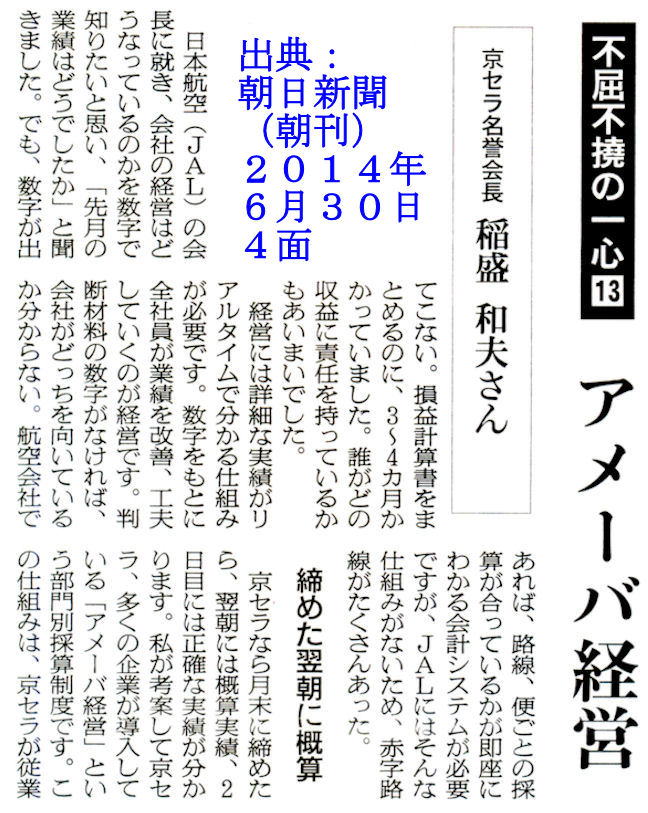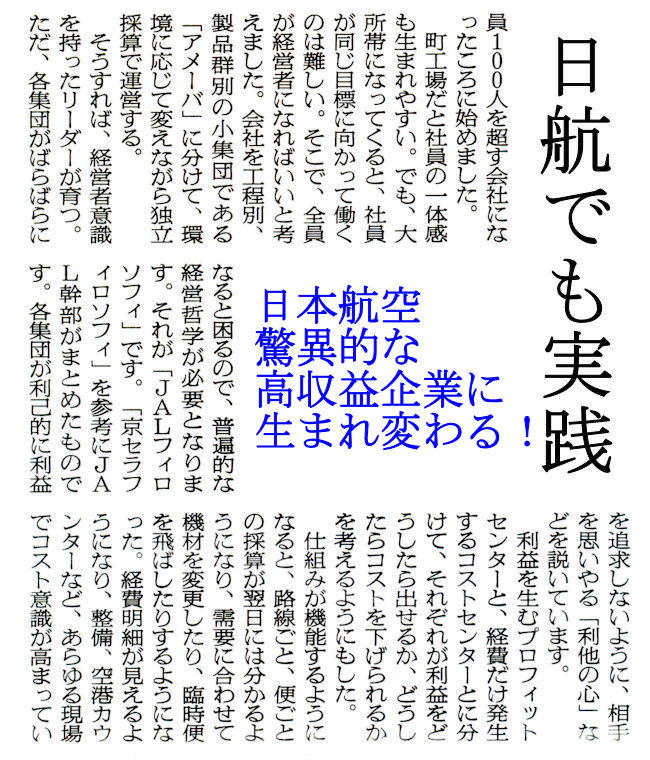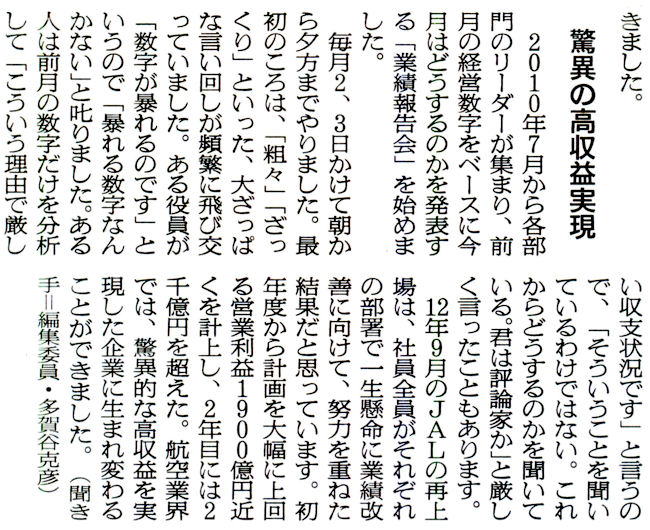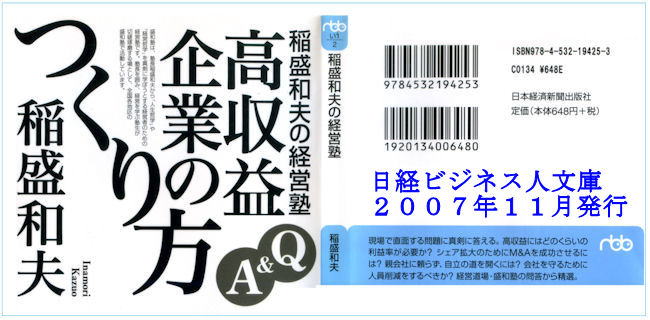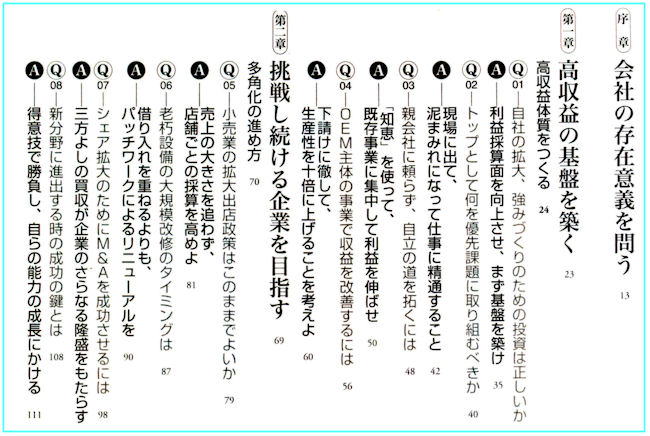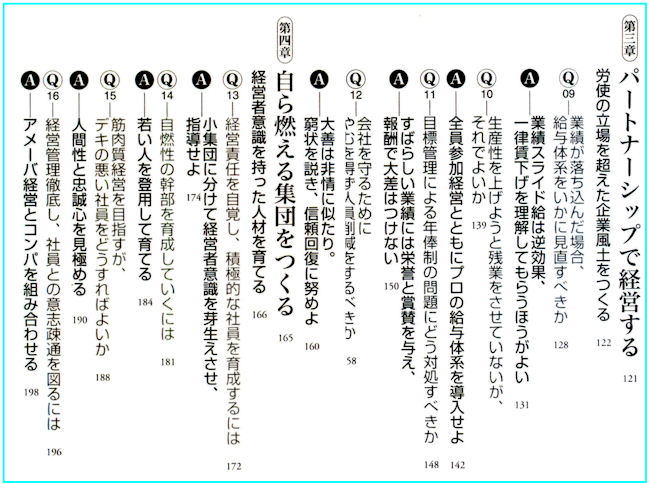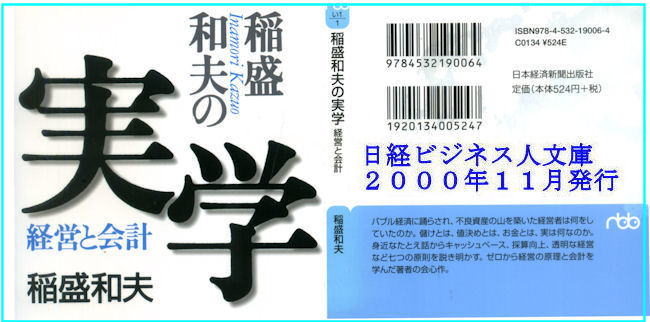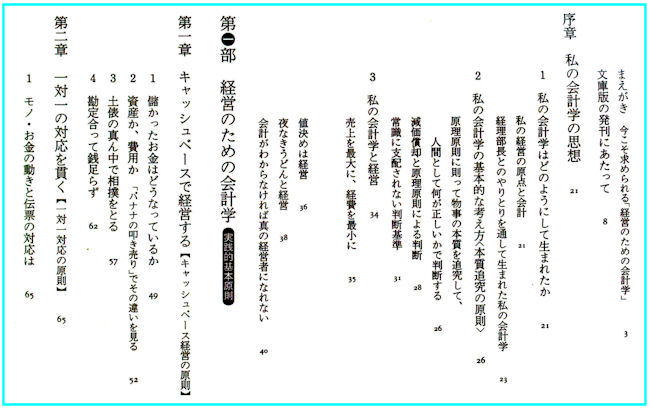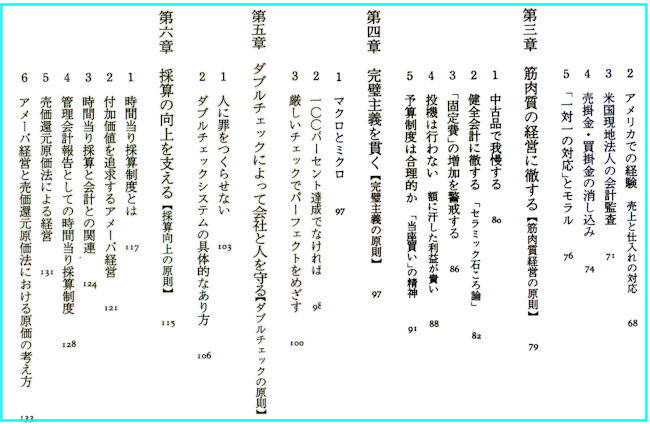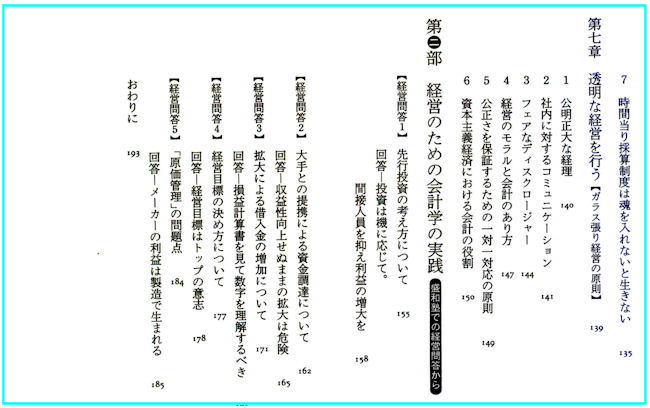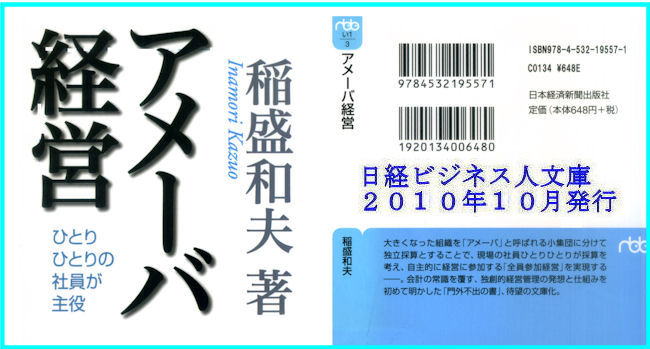�|���{�q���ďo�����|���{�o�ς͕K���Đ�����I
��a�v�E���{�q�_�
�o�T�F���Y�t�H�@�Q�O�P�Q�N�W�����@��P�U�U�Ł`��P�V�T��

�o�u���o�ό�A�Q�O�N�ȏ�o�߂��Ă��A���{�o�ς͒���𑱂��A
�ŋ߂ł́A���{�o�ς̏ے��I���݂ł��������Ɠd���[�J�[�ł������A
�啝�ȐԎ����Z�\���Ă���B
��N�̓����{��k�Ђ⌴�q�͔��d�����́A����ɂ̓^�C�̍^����
�ُ�Ƃ�������~���Ȃǂɂ��A���݂̓��{�o�ς͂��ĂȂ��قǂ�
��؊��ƕNJ��ɕ�܂�Ă���B
����A�o�u�����ɂ͓��{���\�����Ƃ̈�ƌ���ꂽ���A�ߔN�ł́A
�t�ɓ��{�o�ϐ��ނ̏ے��Ƃ��������Ă������{�q��(JAL)���Q�N�O��
�j�]���o�āA�Đ�������B�Q���j�]�K���Ƃ�����ꂽ���{�q��(JAL)��
�Ȃ��\�z��啝�ɒ�����悤�ȋƐт��グ�Ă���̂��B
���̂��Ƃ�`���邱�Ƃɂ���āA���{�o�ς̕����̃q���g���������Ƃ�
�o����̂ł͂Ȃ����ƍl���A����A�o�c��C���ꂽ�҂Ƃ��āA���̌o�߂�
���������Ă����������Ƃɂ����B
�{�e��i�߂�O�ɁA
���{�q��(JAL)�̍Đ��Ƃ�����i��I���������������{�A
�V������ЍX���̎�g�݂��s���Ă����������ٔ����A
���z�̍������ɉ����Ă��������������̋��Z�@�ցA
�P�O�O%�����Ƃ����`�ł����S����������������̊F�l�A
��̓I�ȍČ��v��𗧈Ă�����������ƍĐ��x���@�\�̊F�l�A
�����ĂȂɂ����A
���{�q��������ڂ��������Ă��邷�ׂĂ̂��q�l��
�S����̊��ӂ�\���グ�����B
���āA�Q�O�O�X�N�̉Ă�����A���{�q��(JAL)�̌o�c�����悢���Ȃ�
�̂ł͂Ȃ����Ƃ̋L�����V���Ȃǂ���킷�悤�ɂȂ����B
���{�q��(JAL)�͓��{���\�����Ƃ̈�ł���A�₩�ȃC���[�W��
����Ђł����������ɁA���̂悤�ȃj���[�X�́A�Љ�I�ɑ傫�Ȕ�����
�ĂсA�A���傫������Ă����B
���̒��ɂ́A�u���{�q��(JAL)�͓|�Y���ē��R���v�Ƃ��A�u�Č��͕s�\���v
�Ƃ��A��ό������ӌ����������������B
�����g���A���p�҂̈�l�Ƃ��āA�����̓��{�q��(JAL)�̉����݂̂Ȃ�
�T�[�r�X�������v���Ă��Ȃ������B�܂��A��Бg�D�������I�ł���ƕ�����
�����̂ŁA���̂悤�Ȍ������o�Ă��d�����Ȃ��Ɗ����Ă����B
�V�������܂ꂽ����}�����ɂƂ��Ă��A���{�q����ǂ̂悤�ɏ������邩��
�傫�Ȗ��ƂȂ��Ă����B
�o�c�ɍs���l���Ă��邱�Ƃ͖��炩�ł��������̂́A��̌�����ʋ@�ւƂ��āA
�����E���ۃl�b�g���[�N���x����d�v�ȋ@�\��L���Ă��邱�Ƃ���A
�ǂ̂悤�Ȍ`�Ŏx�����ׂ����c�_����Ă����悤���B
�ŏI�I�ɂ́A�|�Y�Ƃ��������C���[�W�͂�����̂́A�����͂����X�g����
�\�Ȗ@�I�������I�������Ƃ̌����������Ȃ��Ă����B
�������A�C�̏���
����Ȑ܁A���N���ɁA���{�Ɗ�ƍĐ��x���@�\����A�@�I�����Ɋ�Â�
��ЍX���@��K�p������̓��{�q��(JAL)�̉�ɏA�C���Ăق����Ƃ̗v����
�ˑR�ɂ������B
�����g�A�q��ƊE�ɂ͑S���f�l�ł���A�������A�����A���ɁA�V�V��
����ł������̂ŁA���̔C�ł͂Ȃ��Ƒ����ɂ��f��������B
����ł��A���{�o�ς��~�����߂ɂ��ǂ��ɂ��Ăق����ƌJ��Ԃ��v����
�邤���ɁA���̂��Ƃ�^���ɍl����悤�ɂȂ����B
�Ƒ���m�l�́A�u�̗͂������Ȃ����낤����v�A�u�Ӑ߂��������ƂɂȂ��Ă�
��ς�����v�ƊF���������B
�������A�Y�݂ɔY���A���́A�����́A�u���̂��߁A�l�̂��߂ɖ𗧂��Ƃ�
�l�ԂƂ��Ă̍ō��̍s�ׂł���v�Ƃ����l���N�w�ɏƂ点�A��E���A
���{�q��̍Č��ɑS�͂�s�������Ƃ��������̂ł͂Ȃ����Ƃ̌��_�Ɏ������B
�������A�̗͓I�Ȃ��ƂȂǂ�����A�����o�ł���킯�ł��Ȃ��̂ŁA
�����������ɂ����Ă����������Ƃɂ����B
���́A�ǂ̂悤�Ȃ��Ƃł��낤�ƁA�V�������̂��Ƃ��n�߂�ɂ́A
�u�Ȃ��A��������Ȃ���Ȃ�Ȃ��̂��v�Ƃ���
���m�ȈӋ`���Ȃ���Ȃ�Ȃ��ƍl���Ă����B
�����ŁA��Ƃ��ē��{�q����Č�������ɂ́A
�ǂ̂悤�ȈӋ`������̂����l�������A
���̂悤��
�R�̑傫�ȈӋ`�A��`���������ƂɋC�������B
�悸�́A���{�o�ςւ̉e���ł���B
���{�q��(JAL)�͓��{���\�����Ƃ̂P�ł��邾���łȂ��A
���{�o�ς��ے����Ă����Ƃł�����B
���̓��{�q��(JAL)�����ނ��甲���o�����ɁA�Q���j�]�ł�����A
���{�o�ςɈ����e����^���邾���łȂ��A
���{����������Ɏ��M�������Ă��܂��B
�t�ɍČ��𐬌�������A���{�o�ςɂ������e����^���邱�Ƃ��ł���B
�Q�Ԗڂ́A���{�q��(JAL)�Ɏc���ꂽ
�Ј������̌ٗp������Ƃ������Ƃ��B
�Č��𐬌������邽�߂ɂ́A�c�O�Ȃ���A�����̎Ј��ɐE��𗣂��
�����Ȃ��Ă͂Ȃ�Ȃ��B�������A�Č��𐬌�������A�c���ꂽ������
�Ј��̌ٗp����邱�Ƃ͂ł���B
�R�Ԗڂ́A���p�҂̗����̂��߂ł���B
�����A���{�q��(JAL)���j�]����A���{�����ɑ��q���Ђ͂P�Ђ����ƂȂ�B
�����Ȃ�ƁA�P�ГƐ�ƂȂ�A���������������Ȃ��Ȃ��Ă��܂��B
�^���͍��~�܂肵�A�T�[�r�X���������Ă��܂��B
����͌����ė��p�҂̂��߂ɂȂ�Ȃ��B
�����̍q���Ђ������������钆�ŁA���p�҂ɂ������ł��ǂ�
�T�[�r�X���ł���悤�ɂȂ�͂����B
���{�q��(JAL)�̍Č��ɂ́A���̂悤�ȂR�̑�`�����邱�ƂɋC�Â��A
���́A���̑�`�̂��߂ɑS�͂�s�������ƌ��ӂ����B
�Q�O�P�O�N�P���P�X���A���{�q��(JAL)�́A��ЍX���@�̓K�p��\�����A
��ƍĐ��x���@�\�̎x���̂��ƁA�Đ��ւ̓��̂����ݎn�߂��B
���́A�Q���P���ɁA�M���ł���Q�l�̃X�^�b�t��A��ĉ�ɏA�C�����B
�������A���͍q��ƊE�Ɋւ��Ă͉��̒m�����Ȃ��f�l�ł���B
���ɂ���̂́A�o�c�҂Ƃ��Ă̂T�O�N���܂�̌o���Ǝ��̌o�c�N�w�ł���
�u�t�B���\�t�B�v�ƁA�����l���������u�A���[�o�o�c�v�ƌĂ�
����ʍ̎Z�Ǘ����x�����ł���B
���ꂾ���������āA���{�q��̉��v�ɏ��o�����Ƃɂ����̂ł���B
���S�����o�c�ł��Ȃ�
�����A�C�������́A�A���̂悤�Ƀe���r��V���ŁA�Č��͖����ł���
�u���{�q��(JAL)�̂Q���j�]�͕K���v�ƕ���Ă����B
�u���{�q��(JAL)�v�͕ς��Ȃ��A�Ј��̈ӎ����ς��Ȃ����{�q��(JAL)
�Ƃ����̂����Ԃ̌����������B�m���ɁA�ߋ��A��ЍX���@��\���������
�̂����A�Đ��ɐ��������̂͂���قǑ����͂Ȃ��A�ď��ɂ��������̂�
�͂��U�E�T%�����Ȃ��Ƃ����B
���{�q��(JAL)�قǕ����Ȍo�c�����Ă�����Ƃ��A
�����ɍĐ��ł���͂��͂Ȃ��Ƃ����ᔻ�́A
����Ӗ��ł́A�����Ƃ��Ȍ����ł͂������B
�X�Ɂu���{�q��(JAL)�̍Č��v��͊���̋�_�v�Ƃ����_�����������������B
�Č��v��́A�啝�ȘH���̏k���A�l����𒆐S�Ƃ����R�X�g�팸�̓O��A
�l���팸�ȂǁA��ό��������X�g���琬�藧���Ă����B
�Ⴆ�A�O���[�v�̎Ј����́A�Q�O�O�W�N�x�̂T���R�O�O�O�l����
�R���P�O�O�O�l�Ɍ��炵�i�Q���Q�O�O�O�l���فj�A
�Ј����������A�Q�O�`�R�O%������ƂɂȂ��Ă����B
�啝�ȘH���k���ɂ��A����͂Q�O�O�W�N�x�Δ�A
��S�O%(��V�R�O�O�S���~)�����錩���݂ƂȂ��Ă����B
�j�]�ɂ��C���[�W�����ŁA���Ƒ��Ђɑ�ʂ̂��q�l������邱�Ƃ�
�\����������B
�����A�Č��v��ł́A�c�Ɨ��v�̖ڕW�́A�P�N�ڂ��U�S�P���~�A
�Q�N�ڂ��V�T�V���~�ƂȂ��Ă����B
�u�j�]���O�ɂ́A�Q�O�O�O���~�قǂ̐Ԏ���
�����܂�Ă�����Ђ��A
�Z���Ԃł���ȗ��v���o����킯���Ȃ��B�H��������ɏk�����A
�Ј��������ƌ��炷�ׂ����v�Ƃ̔ᔻ���Ă����B
���̗l�Ȍ��������_�̒��A���̓��{�q��(JAL)�ł̎d�����n�܂����B
�����́A�T�Q�C�R�������o����\�肾�������A�������������A
�����̂悤�ɏo�Ђ��A��c�ɏo�Ȃ�����A�����K�₷�邪�������B
���̒��ŁA���̂S�_�̑傫�Ȗ�肪���邱�ƂɋC�������B
�P�_�ڂ́A�o�c�w�̎����ł���B
������O�̂��Ƃł��邪�A��ƌo�c�����邤���ň�ԑ厖�Ȃ��Ƃ́A
�o�c�����ɗ��h�Ȑl�Ԑ��������[�_�[�𐘂��邱�Ƃł���B
�ǂ�ȍ���ɒ��ʂ��Ă��A�����邱�ƂȂ��^���ʂ�����g�ޗE�C������A
�܂��A�����⒇�Ԃ��ɂ���D�����������Ă���悤�ȁA
�܂���Ɍ����œw�͂�ӂ�Ȃ��悤�ȃ��[�_�[�łȂ���A
��Ђ͂��납�A�����ȕ��傳���܂Ƃ߂邱�Ƃ͂ł��Ȃ��B
�������A���{�q��(JAL)�̊����́A�w���ƃv���C�h�����͍����������A
�����҈ӎ��Ɍ����A�]�_�ƓI�Ȍ����ɏI�n����悤�Ȑl���ڗ������B
�|�Y�����ɂ�������炸�A
���̌�����SARS��A���[�}���V���b�N�Ȃ�
�O�I�v���ɂ��苁�߁A
�f���Ɏ��甽�Ȃ��A
�E�C�������ĉ��v��i�߂悤�Ƃ���
���[�_�[�͂��Ȃ������B
����ł͍Č��͂��ڂ��Ȃ��B
�f���炵��
���[�_�[����Ă邱�ƁA���ꂪ��Ԃ̉ۑ�ł������B
�Q�_�ڂ́A��������ƌo�c�̊�{��S���������Ă��Ȃ��������Ƃł���B
��Ƃ��o�c���邽�߂ɂ́A�Œ���A
���݂̌o�c�̎��Ԃ������ŕ������Ă��Ȃ���Ȃ�Ȃ��B
�Ⴆ�A���N�ɕ�����Ă��A���咷�́A������̑O���ⓖ���̔���グ�A
�o��A�̎Z�Ȃǂ��ɓ������Ȃ���Ȃ�Ȃ��B
���ꂪ�S���o���Ă��Ȃ������̂ŁA�L�҉��
�u�i�����̓��{�q��(JAL)�j�̌o�c�҂����́j
���S�����o�c�ł��Ȃ��v��
����Ȃ��Ƃ������Ă��܂����B
���ہA�����̓��{�q��(JAL)�ł́A�o�c���т��W�v�����̂ɂQ�������
�����Ă����̂ŁA
���̂悤��
�������������Ă��銲���͂�������Ȃ������B
���������A���v�ɑ���ӎ������ɔ����A�����C���t����S���Ă���
�̂�����A���v��Nj����邱�Ƃ͂��������̂ł͂Ȃ����Ǝ咣����҂��������B
�q���ЂɂƂ��Ĉ��S���ł��厖�Ȃ��Ƃ͓��R�̂��Ƃł��邪�A
���S����邽�߂ɂ��A���v�݁A��������ƂɈ��S�̂��߂̓���������
���Ƃ����킩���Ă��Ȃ������̂ł���B
�R�_�ڂ��A�{�̂Ǝq��ЁA�{�Ђƌ���A�o�c�����ƈ�ʎЈ���
�o���o���ň�̊����Ȃ������Ƃ������Ƃł���B
���ہA�{�Г��������{���Ԃ̕ǂ͌����A���̘A�g�����Ă��Ȃ������B
���̌����́A�L�����A�ƃm���L�����A�ɗގ����������I�Ƃ�������Г����x��
����Ǝv�������A���ɂ͂���ȏ�̍��{�I�Ȍ���������Ɗ�����ꂽ�B
����́A�o�c�̖ړI�����m�ł͂Ȃ��A
�Ј��S�������ׂ����ʂ̉��l�ς��Ȃ�
�Ƃ������Ƃł������B
������A�`���I�ɂǂ�Ȏ{�������Ă��A�����Ј����܂ߑS�Ј����ꖇ���
�Ȃ�Ȃ������̂ł���B
�S�_�ڂ́A���q�l�̎��_�������Ă����Ƃ������Ƃł���B
�q��Y�Ƃ͍��z�ȋ@�ނ𑽐��g�����߁A����ȑ��u�Y�ƂƎv��ꂪ���ł��邪�A
���́A�����ł͂Ȃ��A���ɂ̃T�[�r�X�Y�Ƃł���ƍl�����B
�����ȃ`�P�b�g���w�������悷��ȏ�A���q�l���ō��̂����ĂȂ���
���҂���͓̂��R�ł���B�������A������q�Ƃ��ė��p���Ă���������A
���{�q��̃T�[�r�X�̓}�j���A���ʂ�ŁA�S���������ĂȂ��Ɗ����Ă����B
����ł͂��q�l�ɐS���疞�����������邱�Ƃ͂Ȃ����낤�B
����̓T�[�r�X�Ƃł�����{�q��(JAL)�ɂƂ��Ă͒v���I�Ȃ��ƂɂȂ�
�Ɗ����Ă����B
���{�q��(JAL)�ŃA���[�o�o�c
���̂悤�ȂS�̖��A�܂�A
�u�^�̃��[�_�[�̕s�݁v�A
�u�o�c�����ɑ���ӎ��̊��v�A
�u��ЂƂ��Ă̈�̊��̌��@�v�A
�u���q�l���_�̔����v
�Ȃǂ����{�q��j�]�̗v�����Ǝv�����̂ŁA
���́A���Z������A��Ă����X�^�b�t��A����̊����Ј��ƈꏏ�ɂȂ��āA
���ꂼ��A���̂悤�Ȏ��g�݂��n�߂��B
�悸�́A���[�_�[�̈琬�ł���B
�Q�O�P�O�N�U�����A�o�c������T�O�����W�߂āA
���[�_�[����Ə̂��āA�P�����Ԃɂ킽��A
���T�S��A���v�P�V��̓O�ꂵ��������s�����B
���e�́A����������l���Ă���
�u���[�_�[�Ƃ��Ă݂̍���v��
�o�c�����邽�߂ɕK�v�ȁu�Ǘ���v�v�Ȃǂł���B
���̒��ŁA�����g���U��o�Ȃ��A���ڍu�`������Ɠ����ɁA
�ނ�ƁA�ʃr�[�����L�q��ă\�o�Ȃǂł̃R���p���s���A
�����ȋc�_���d�˂��B
�ŏ��̂���́A���܂���C�łȂ������l�������B
���܂ŁA���ԓ��̐l�ԊW���ɂ��Ă�����������ŁA
�u�l�Ƃ��Ă̐������l�����v��u�M�Ӂv���厖���Ƃ����Ă�
�����ł��Ȃ������̂�������Ȃ��B
���́A����Ȕނ�ɌJ��Ԃ��A
�u���{�q��(JAL)�͓|�Y�����B
����͍��܂ł̍l�������Ԉ���Ă������炾�v�Ɛ������B
�����X�g���[�g�Ɍ����A�ŏ��̓��b�Ƃ��Ă����������A
����Ɩڂ̐F���ς���Ă����B
�����āu�����Ƒ������̂悤�ȋ�����Ă�����A
���{�q��(JAL)�͓|�Y���邱�Ƃ����������v�Ɣ�������l���o�Ă����B
�܂��A�P�����ɂ킽�蓯������������������ԂƂ��āA
�����Ԃɋ�����̊������܂�Ă����悤���B
���̍ŏ��̃��[�_�[���������i���A�l�ԓI�ɑ傫����������̂�
�ڂ̓�����ɂ��āA��������u�������Ƃ��������Ј�����̋�����]������A
����ɑΏۂ��L���A����܂łɂR�O�O�O���ȏ�̊Ǘ��E�Ј����A
�����悤�ȃ��[�_�[������Ă���B
�܂��A���݂ł��P�O�O�]��̌o�c�����Ј��ɑ��ẮA
�����o�Ȃ��郊�[�_�[������J�Â��Ă���B
���̌��ʁA�吼�����A�؋`���В����͂��߂Ƃ��A
�ȑO�Ƃ͌��Ⴆ��悤�ȁA�M�ӂƎg�����ɂ��ӂ��f���炵�����[�_�[������
���ꂼ��̌���Ŏ��X�ƈ���Ă���B
���Ɏ��g�̂́A����ʍ̎Z���x�̓����ł���B
�O�q�̂悤�ɁA���{�q��(JAL)�ł́A�����Ōo�c����Ƃ������o���ł���A
�N���o�c���тɊS�������Ă��Ȃ������B
�����Ŏ��́A�o������ɁA�����̌o�c���т��o���邾�������A
����������ʂɏo���悤�Ɏw�������B
�悤�₭�A�Ă��납��͂��̂悤�Ȑ������o��悤�ɂȂ����̂ŁA
������x�[�X�ɁA�e�{����q��Ђ̃��[�_�[�̕��X�ɏW�܂��Ă��炢�A
������̎��тɂ��Ĕ��\����u�Ɛѕ�v�Ƃ��������c���n�߂��B
���͈Ӗ��̂킩��Ȃ������������ẮA
�u�Ȃ����̂悤�Ȑ����ɂȂ�̂��v��O�ꂵ�Ď��₵�Ă������B
���̂悤�ȉ�c�𑱂��钆�ŁA�����Ōo�c���邱�Ƃ�������O�ɂȂ�A
���݂ł́A���ꂼ��̕��咷���A
���̕���̌o�c�҂Ƃ��āA�@���Ɍo�c�̉��P�ɓw�߂Ă������A
���ꂩ��ǂ��̎Z���悭���Ă������Ȃǂ�����̎v�������߂Ĕ��\���Ă���B
����A���́A�q��ƊE�̗��v�̓t���C�g���琶�܂��̂�����A
�H�����ƁA�ւ��Ƃ̍̎Z�����A���^�C���ɂ킩��悤�Ȏd�g�݂����Ȃ���A
��БS�̂̍̎Z�����コ���邱�Ƃ͏o���Ȃ��ƍl���Ă����B
�c�O�Ȃ���A����܂ŁA���̂悤�Ȏd�g�݂��l�������Ȃ��A
���ہA�ǂ̘H�����A�܂��ǂ̕ւ��ǂ̂��炢���v���グ�Ă���̂�
������Ȃ������B
���̂��߁A�Ԏ��𐂂ꗬ���������H�����������������B
�����ŁA�H���ʂ̎��x�������ɕ�����悤�Ȏd�g�݂�
����̎Ј��Ƌc�_���Ȃ��������B
�����āA�H���ʂɐӔC�҂����߁A���̐ӔC�҂����S�ƂȂ�A
���v�������߂邽�߂ɁA�n�ӍH�v���d�˂Ă�����悤�ɂ����B
�܂��A������c�ƂȂǑ����̌��ƕ���ł��A
������o���邾�������������A���ꂼ��̐ӔC�m�ɂ���ƂƂ��ɁA
�o�c���т��ڍׂɂ킩��悤�Ȏd�g�݂����A
�W����Ј����ׂĂɌ��J����悤�ɂ����B
���{�q��(JAL)�ŃA���[�o�o�c�Ƃ�������Ǘ���v�̎d�g�݂�������̂ł���B
����͍�N�S����蓱������A���v���̌���ɑ傫���v�����Ă���B
�R�ڂ́A�Ј��̈�̊��ł���B
�ǂ�Ȃɑ����̗D�G�ȎЈ������Ă��A�o�c�̖ړI�����m�łȂ��A
�Ј��̍l�������o���o���Ŏ�������ȍs�����Ƃ��Ă��ẮA
��Ƃ͖{�������Ă���͂����邱�Ƃ͂ł��Ȃ��B
���̓T�^�I�ȗႪ�j�]�O�̓��{�q��(JAL)��������������Ȃ��B
���̂��߁A���́A���{�q��(JAL)�Ƃ�����Ђ̌o�c�̖ړI�A
�܂��Ɨ��O�����߂č��悤�A
�܂��A���{�q��(JAL)�S�Ј������ׂ����ʂ̉��l�ρA
�܂�t�B���\�t�B���߂Ăق����Ǝw�������B
�����A�����Ј��ɂ��A���{�q��(JAL)�t�B���\�t�B����ψ���v��
�ݗ�����A���̍u�`�⒘��Ȃǂ��Q�l�ɂ��Ȃ���A�O��I�ȋc�_���s���A
�Q�O�P�P�N�P���ɂ́A�y���{�q��(JAL)�t�B���\�t�B�z�����肳���ƂƂ��ɁA
���̂悤�Ȋ�Ɨ��O�����肳�ꂽ�B
���{�q��(JAL)�O���[�v�́A�Ј��̕��S���ʂ̍K����Nj����A
�@���q���܂ɍō��̃T�[�r�X����܂��B
�A��Ɖ��l�����߁A�Љ�̐i�����W�ɍv�����܂��B
�y���{�q��(JAL)�t�B���\�t�B�z�́A�蒠�ɂ܂Ƃ߂��A
�Q�O�P�P�N�t�ɂ́A�S�Ј��ɔz�z���ꂽ�B
���̍ŏ��̍��ڂ́A�u���炵���l���𑗂邽�߂Ɂv�Ƃ������̂ł���B
�܂�A��Ɨ��O�ɂ���A�y���{�q��(JAL)�t�B���\�t�B�z�ɂ���A
���{�q��(JAL)�̌o�c�̍����́A�Ј���厖�ɂ���Ƃ������ƁA
�Ј�������ł��邱�Ƃm�Ɏ����Ă���̂ł���B
�y���{�q��(JAL)�t�B���\�t�B�z�蒠��z�z��A
�e�E��ł́A�����֓ǂ�������A�Ǝ��̕�����J�Â����肵�Ă���B
�܂��A�S�Ј���ΏۂɁA�E�ꉡ�f�I�ȃt�B���\�t�B������s���Ă���B
���݂ł́A�ǂ̐E��ł��A���̎Ј����犲���Ј��Ɏ���܂ŁA
���X�̋Ɩ��̔��f�����̃t�B���\�t�B���y�[�X�ɍs���悤�ɂȂ��Ă���B
�����āA�E�ꂪ�Ⴄ�Ј����m���A�t�B���\�t�B�Ƃ������ʂ̉��l�ς�����
���Ƃɂ��A���͂������p������̕��i�ɂȂ��Ă����̂ł���B
�Ō�����q�l���_�ɂ��ẮA
��A�C�����瑽���̂��q�l����ό��������ᔻ�̂��莆���Ă����̂ŁA
���}�ɑ��ł��Ȃ��Ă͂Ȃ�Ȃ��ƒɊ����Ă����B
�S���̖����Ȃǂɍׂ����w�����o���Ă������A���ꂾ���ł͕s�\�����Ǝv���A
�����g�����ڋ�`�ɏo�����A���ۂɂ��q�l�ɐڂ��Ă���L���r���A�e���_���g��
�p�C���b�g�A�܂���`�J�E���^�[�œ����Ă���X�^�b�t�̊F����ɏW�܂���
���炢�A�u���ꂩ�����ό���������������ǁA
���q�l����ԑ�Ȃ̂�����A����܂ňȏ�ɁA
�S�����߂��T�[�r�X�ɓw�߂Ăق����B����ɗ��F���A
�V�������{�q��(JAL)�̏ے��ɂȂ�v�ƒ��ɘb�����ĉ�����B
���̂悤�ɁA�S�̉ۑ�ɑ��A�܂��܂��s�\���ł͂��邪�A
���Ȃ�ɂł������̑�͎���Ă�������ł���B
�������A���̊Ԃ��A�X���v��Ɏ����ꂽ�������̍\�����v�̈Č���
��̓I�ɐi�߂Ă����Ȃ��Ă͂Ȃ�Ȃ������B
���̂��߁A�����̂悤�Ɍ��_�������Ȃ���Ȃ�Ȃ��d��ȈČ������X��
�������Ă���B����������Ј��F�ŁA�ЂƂЂƂc�_���Ȃ���A
���_���o���������B
�N��I�Ȃ��Ƃ�����A�̗͓I�ɂ����_�I�ɂ���ό��������ł͂��������A
���̂Ȃ��ŁA�Ј��̈ӎ����ς��A��Ђ����������������Ă����
�����ł��邱�Ƃ������Ă������Ƃ��傫�ȋ~���ƂȂ����B
���q�l����u�p�C���b�g�̋@���ł̃A�i�E���X���f���炵���v�A
�u�q���斱���̐S���܂�Ή��Ɋ��������v�Ȃǂ̂��J�߂̎莆�����Ƃ�
�����Ă����B�o�c�������A���[�_�[�Ƃ��āA���搂�͂��ĉ��v�Ɏ��g��
�悤�ɂȂ��Ă����B
�Ɛѕ�̒��ł��A�o�c�����ɑ��銴�x���オ���Ă��邱�Ƃ�
���m�ɂȂ��Ă����B������O�����h�n���h�����O�̎Ј��B��
���ꂼ��̗���Ŏ���I�Ɍo��팸�Ȃǂɓw�߂Ă���B
�����̋߂Ă�����Ђ��|�Y���A�E��ł͐������̎Ј������߂Ă������B
�q���Ђ̐������ł�����H�����啝�ɏk�����ꂽ�B
�ܗ^�������Ȃ苋�^���啝�ɉ��������B
�Ј����ӋC�������āA�E��͈Â��Ȃ��Ă��d�����Ȃ��B
�������A���{�q��͈�����B�S�Ј��ɒ��Ԉӎ������܂�A
�o�c�҈ӎ����萶���A�E��Ɋ��C�����܂�Ă����B
��ό��������̒��A��J��ɂ��܂��o��팸��������̂���
�i��őn�ӍH�v���Â炵�A�K���ȓw�͂𑱂��錒�C�ȎЈ������B
�ނ炱�������̌ւ�ł���A���{�q��(JAL)�̕�Ȃ̂ł���B
���̌��ʁA���R�ƌ����̎��т͗\�z������X�s�[�h�ʼn��P����A
���S�w�W�����Ђ������Ă������B��J����(�Ђ낤����ς�)�̖�����
�����Ă������A���͊m���Ȏ育�����������邱�Ƃ��ł��Ă����B
�����{��k�Ђ̏Ռ�
�������āA�u����ŏ��N�x�͗\�z���邢�����тŏI���邱�Ƃ��ł��������v
�Ǝv���Ă������ɁA�����{��k�Ђ��N�����B
�C�O����̂��q�l�͌������A�����̎��v����������B��u�s�����悬�����B
�������A�Ј������͈�����B�u�l�ԂƂ��Đ��������Ƃ����ׂ����v�Ƃ���
�t�B���\�t�B���w�����̎Ј������������I�ɍs�����n�߂��B
����`�ł́A�����������g���A��`�^�[�~�i���ŌǗ�������A�Ôg�̔�Q��
��������Ў҂ł������ɂ��S��炸�A��Ў҂̊F�l�̋~�ρE�x���ɁA���悵��
���g��ł��ꂽ�B�����x���̈Ӗ������߂āA�������̗Վ��ւ𓌖k�ɔ����
���ꂽ�B
����A����グ������Ƃ킩��ƁA����Ȃ�o��팸�ɓw�߂Ă��ꂽ�B
���̌��ʁA�l���͐Ԏ��ɂȂ������A�܌�����͍����ɖ߂����̂ł���B
���̂Ƃ��ɂ͂��߂āA���́A���{�q��(JAL)�ɂ́A�������̑f���炵��
���[�_�[������Ă��邾���łȂ��A�Ј��ɂ��t�B���\�t�B���Z�����A
���{�q��(JAL)�Đ��̂��߂ɁA�e�����S�͂�s�����Ă��邱�Ƃ��m�M�ł����B
�������āA��k�Јȍ~�A���{�o�ς�������钆�ŁA���{�q��(JAL)��
�����A�v���������т������邱�Ƃ��ł����B
���́A�A�C�������A�R�N�Ԃ͐ӔC�������Čo�c�ɂ�����|���Ă����B
���傤�ǂQ�N���o�߂��悤�Ƃ���Ƃ��ɁA�o�g���^�b�`�̏��������邱�Ƃ�
�����B���N�̂Q���ɁA���͈���ނ����_��ɏA�C���A���{�q��(JAL)��
�ł��������Ƃ��ɁA���ƈꏏ�ɑS�Ј����ە����������吼�В��ɉ�ɏA�C
���Ă��炢�A�H�������{�����ł���A�ؐꖱ�ɎВ��ɏA�C���Ă��炤���Ƃɂ����B
�܂��A�햱�ȏ�̃����o�[�ɂ��햱���ݒu���A�o�c��d�v�Ȏ����́A
�吼�V��A�A�ؐV�В��𒆐S�ɁA�S���œO��I�ɋc�_���A���c�̏�Ō��_��
�����Ă����悤�Ȍo�c�̐��Ƃ����B
�Q�O�P�Q�N�T���ɂ́A�Q�O�P�Q�N�R�����̌o�c���т\���邱�Ƃ��ł����B
�����{��k�Ђ�^�C�̍^���ȂǑ�ό������o�ϊ��̒��A�����̉c�Ɨ��v�ڕW
�V�T�V���~��啝�ɏ���A�Q�O�S�X���~���v�シ�邱�Ƃ��ł����B
����ɂ́A��ЍX���葱�ɂ�������Y�]��ɂ�錸�����p���A�~���ɂ��
�R����̍팸����^�������A��ԑ傫�ȗv���́A�S�Ј��̂���܂ʓw�͂ł���B
����グ�̐L�т��]����҂ł��Ȃ����A�S�Ј�������I�Ɍo��팸�Ɏ��g�݁A
�v����W�O�O���~�߂��o������炷���Ƃ��ł����B���̂��߂ɁA�啝��
�ڕW����c�Ɨ��v���c�����Ƃ��ł����B
���̂悤�ȗ\�z���͂邩�ɏ�����т��グ�����Ƃɑ��A�����]����
������������A��ЍX���葱�̓K�p������Ƃ����̂悤�ɋ}����
�͉̂����s�����ł͂Ȃ����Ƃ̈ӌ������ɂ��邱�Ƃ��A���͐S����c�O��
�v������B
�������Ђ̗���ōl����Ȃ�A���ɗ��炸�����w�͂ō����ō��v��B������
�ɂ��S��炸�A�|�Y������Ђ̕����Ɛт��ǂ��������Ƃ͕s�{�ӂɊ�������
�ł��낤�B
�������A���{�q��(JAL)�ɑ���x�����e�̘g�g�݂ɂ��ẮA
���I�x�������肵�������ɁA�@���Ɋ�Â��A���Ă̎���Ȃǂ����܂��A
�W�Ȓ����ƍĐ��x���@�\�ɂċc�_���Ȃ���āA�Љ�I�ɂ����������
�`�Ō��܂������̂ł���B
���ʂƂ��āA�Ɛт��\�z�ȏ�ɗǂ���������Ƃ����āA�@�����̂��̂�
�s��������A�x���̘g�g�ݎ��̂��Ԉ���Ă����̂ł͂Ȃ����Ƃ����c�_�́A
�܂������Ӗ����Ȃ��Ȃ��Ɗ����Ă���B
��ЍX���@���K�p�����Ƃ������Ƃ́A����܂ł̌o�c���S�ʓI��
�ے肳��邱�Ƃł���A���𗬂��悤�Ȍ��������X�g�����`���t������
�����łȂ��A�Љ�猵�������e���A��ƃC���[�W�͒������ʑ�����B
���̑���A���J�b�g���s���A���Y�E���]���̌������葱�ł���
���Y�]�肪�s��ꌸ�����p���������B����́A�X���@�K�p��Ђɑ���
��ʓI�Ȑ��x�ł���A���ʂɓ��{�q��(JAL)���D�����ꂽ�킯�ł͌����ĂȂ��B
�܂��A���{�q��(JAL)�́A�@�\�̎x���ɂ��A��R�O�O�O���~�̗Z���������A
���̎������g���A���l�̔���������A�V�s�̋@�ނ̍w���ȂǂɎg���ȂǁA
���������䂪�߂����Ƃ͂Ȃ��A�P�N�ȓ��ɋ������܂ߑS�z��ԍς��Ă���B
����ɁA���{�q��(JAL)�͑��z�̌J�z�����������邽�߁A�ېŏ����̈��k��
�Ă��邪�A�������ʂ̐Ԏ���ЂƓ����������Ă��邾���ł���A
���ʂȗD���[�u���Ă���킯�ł͂Ȃ��B�܂��A�ď�ꂪ��������A
�x���@�\����o�������������R�T�O�O���~���Ă��Ԃ��ł�����̂Ǝv���B
�ȏオ�A���{�q��(JAL)�̂���܂��ł���B
���{�o�ς������邽�߂ɂ́A���̂悤�Ȍ`�ŁA�����o�������ƍĐ�
�x���@�\�̂悤�ȃt�@���h�����̖������ʂ����P�[�X�������Ă����
�v����B
���̈Ӗ��ł́A���{�q��(JAL)�̍Đ��́A�ЂƂ̐�s����ɂȂ�ł��낤�B
����A����̂悤�ɁA���ʓI�Ɋ�ƍĐ��ɐ�����������������āA
�s�����Ȏx�����������̂ł͂Ȃ����A����̊�����ׂ��ł͂Ȃ����A
�Ƃ��������ɂȂ邱�Ƃ͔����Ȃ���Ȃ�Ȃ��B
�O���[�o���ȋ����̒��ŁA���ď����ɂ͌����Ȃ����{���L�́A
�u�o��Y�͑łv�悤�ȊԈ�����������������邱�Ƃ́A
����A���{�q��(JAL)�̂悤�ɕ�����ڎw�������̊�Ƃ̑��g�ɂȂ��Ă��܂�
����ł���B
���[�_�[�̏���
���{�q��(JAL)�́A�܂��܂��Č��r��ł���A���q�l�ւ̃T�[�r�X�Ȃlj��P����
�]�n�͖����ɂ���B�V�o�c�w��擪�ɁA���ꂩ��������Ė��S���邱�ƂȂ��A
����Ȃ�w�͂�S�Ј��ŏd�ˁA���S���������A�{���ɂ��q�l���爤����A
�S�Ј������S���ʂōK������������悤�ȁA�܂������̊F�l������x������
�悩�����Ǝv�����Ђɂ��Ă��������Ǝv���B
���āA���{�q��(JAL)�́A��������𑱂��A���{�̐��ނ��ے������Ƃł������B
�������A���q�l���܂ߑ����̊W�҂̊F�l�̂��x���ƎЈ��̌����ȓw�͂ɂ��A
�܂������̖�肪�c����Ă��邪�A�\�z����悤�ȕ����𐋂�����B
�ł́A�����������ʂȂ��Ƃ��������Ƃ����Ƃ����ł͂Ȃ��B����o�c�헪��
��������A����������o�������悤�ȍ���l�������Ƃ͈�Ȃ��B
�����A���́A�O�q�����悤�ȁA������O�̉��v�𒅎��Ɏ��H���Ă����������ł���A
�ǂ�ȍ���ɒ��ʂ��悤�ƁA�����邱�ƂȂ��A�S���ŗ͂����킹�āA
��������z���悤�ƎЈ����܂��A�������ē�����Ђɋ߂Ă���̂�����A
�������l�ς������āA���������A�O�i�����Ƙb���Ă��������ł���B
�l�ԂƂ��āA�o�c�҂Ƃ��āA������O�̂��Ƃ��Ɏ��s���Ă��������ł���B
�������A���݂̓��{�̑��Ƃł͂��̓�����O�̂��Ƃ��o���Ă��Ȃ�
�̂ł͂Ȃ����낤���B
�ڕW���f���A�D�G�Ȉꕔ�̃X�^�b�t�������B�����邽�߂̐헪�𗧈Ă���B
�g�b�v�́A���ꂪ�܂�Ŋ��Ɏ����������̂悤�ȃv���[���e�[�V�������Г��O�ōs���B
�������A�o�ϊ��͓��R�ω����A�����ɑ傫�ȍ���ɒ��ʂ���B
���̂Ƃ��A����ɐ^���ʂ�����g�ނ��Ƃ������A�������T���A
�������瓦���悤�Ƃ��Ă��Ȃ����낤���B
����ł́A�����ĎЈ��̋��͂邱�Ƃ͂ł����A
�ڕW��B�����邱�Ƃ��ł��Ȃ��B
�ǂ�ȍ���ȏɒ��ʂ��悤�ƁA
���[�_�[�͎��炪�f�����ڕW�ɑ��A
�K���B��������Ƃ����M�O�������Ȃ���Ȃ�Ȃ��B
���̂����ŁA�S�Ј��̗͂����W�����A����ɐ^���ʂ��痧��������Ȃ���A
�����͂��肦�Ȃ��B
���̂��߂ɂ́A���[�_�[�ɂ́A�ǂ�ȋ�J�����Ă������𐬂������悤�Ƃ���
�����o��ƈӎu�A�܂�s�ҕs���̐��_���K�v�ƂȂ�B
�܂��A�ꏏ�ɋ�J�����ɂ���Ј��ƁA��������A�S���J������ł����Ȃ����
�Ȃ�Ȃ��B
���́A�ǂ�ȋꋫ�ɂ����Ƃł���A
���[�_�[���A�f���炵���Ј��Ɍb�܂�Ă��邱�ƂɊ��ӂ��A
�Ј���M���A�Ј��ƈ�̂ƂȂ��āA�����ȓw�͂��d�˂�Ȃ�A
���͕K���J���Ă����Ɗm�M���Ă���B
�����āA���̂悤�Ȋ�Ƃ������Ă����Ȃ�A
���{�o�ς͕K�������ł���ƐM���Ă���B
�ȏ�
���{�q��(JAL)�Đ��ւ̂R�N��
�|���͌N��̐e�����ꂳ�炢�̔N��B�f���Ɍ������Ƃ�
�|��a�v���_������
�o�T�F�T������2013�N3��22���� ��R�W�Ł`��S�P��
���Z������d�d(KDDI)�̑n�Ǝ҂Ƃ��Ēm������a�v��(81)���A
��ЍX���@��K�p���ꂽ���{�q��(JAL)�̍Č��������ĊۂR�N���߂����B
����̉��n�]���ċƐт��u��������������Ŏ������ޔC����B
�ď��Ɏ�����̓��̂�Ƒg�D�Đ��̔錍�����B
�T�������E�X�����}�L�ҁF
���{�q��iJAL�j�͂Q�O�P�O�N�P���A��ЍX���@��K�p����ē|�Y
���܂������A�Q�O�P�R�N�R�����̌��Z�ł́A�A���c�Ɨ��v���ʂ�
�P�W�U�O���~�ōD�����ێ����Ă��܂��B
��a�v���_��F
�Q�O�P�R�N�P���V���ɁA�ă{�X�g���E���[�K�����ۋ�`�ŁA�{�[�C���O
�V�W�V�^�@���o�b�e���[�̔��Ύ��̂��N�����܂����B���{�q��(JAL)�͂V�@��
�ۗL���A�{�X�g������T���f�B�G�S���Ȃǎ��v�����������ې��U�H����
�������Ă��܂����B���̌������킩��܂ʼn^�q��~�ɂȂ��āA���ەւ�
�������q�ɒǂ����܂�A�����̌��Z�ɑ傫�ȉe�����o��Ɗo�債��
������ł��B�������A�֘A���傪��@�̉^�p�Ȃǂňꐶ�������J�肵�A
�e�����ŏ����ɐH���~�߂邱�Ƃ��ł��܂����B�s���̎��Ԃł������A
���ĂⓌ��A�W�A�̎��v���D���ɐ��ڂ��Ă��邱�Ƃ������ĉ^�q��~��
���������͔҉�ł��錩�ʂ��ł��B
�T�������E�X�����}�L�ҁF
�R�N�O�A�ǂ�ꂾ�������{�q��iJAL�j�̍Č����V�W�Ƃ�������ŁA
�Ȃ���������ł����B
��a�v���_��F
���{���ƍĐ��x���@�\���牽�x���J��Ԃ����܂�܂����B
�ŏI�I�Ɉ������̂́A�O�̑�`������ƍl��������ł��B
��ڂ́A���{�q��iJAL�j���Ԃ��Ɠ��{�̍q���Ђ͑S����(ANA)��
�P�ГƐ�ɂȂ��Ă��܂��A�K���ȉ^���ȂǍ����ɂƂ��Ė]�܂����T�[�r�X��
����Ȃ��Ȃ�̂ł͂Ȃ����Ƃ������O�B
��ڂ́A���{�q��iJAL�j�̂悤�ȑ��Ƃ��Ԃ��ƁA���{�o�ϑS�̂�
��s�����ǂ��Ȃ邩�킩��Ȃ��Ȃ�Ƃ����뜜�B
�O�ڂ́A���̂悤�ȏA�E��̎���Ɍٗp���ł��邾����肽���Ǝv�������Ƃł��B
�|�Y�ɂ���āA�S���W��l�̏]�ƈ��̂����P���U��l�����邱�ƂɂȂ�܂������A
�R���Q��l�̌ٗp�͉��Ƃ����܂����B
�T�������E�X�����}�L�ҁF
�Đ��̉ߒ��ł������J�������Ƃ͉��ł����B
��a�v���_��F
���{�q��iJAL�j�́A�i�V���i���E�t���b�O�E�L�����A�Ƃ��Ă��Ă͂₳��Ă���
�G���[�g�W�c�ŁA�����̓V������吨����Ă����̂ŁA�|�Y�����Ƃ��A
�Ј������́u���������̂����łԂꂽ�킯����Ȃ��B�o�c�̐ӔC���B
���������v�ȂǂƁA�ǂ������l���̂悤�ŁA�����҈ӎ����Ɍ����܂����B
���{���ƍĐ��x���@�\���x�����A��s�@���������Ȃ���Đ�����
�Ƃ�����@��I�������̂ŁA�Ԃꂽ�������Ȃ��̂�������Ȃ��B
����Ȃ�A�Ј��̍l�������̂��̂�ς��Ȃ���Ȃ�Ȃ��ƌ��ӂ��܂����B
�����ŁA�u��s�@���~�߂�Ɖ�Ђ��ċN�s�\�ɂȂ�̂Ŏ��Ƃ͌p�����Ă��邪�A
���{�q��iJAL�j�͊��S�ɂԂꂽ��ł���B
���{�̎x�����Ȃ���A�F����͍����A�E�ƈ��菊�ɍs���ĐE��T���Ȃ����
�Ȃ�Ȃ������B
���ꂾ���̖��f�𑽂��̊W�҂ɂ����A�Đ����悤�Ƃ��Ă��錻�������A
�����ɂȂ��Ă��������v���x�X�i������j�Ɛ����܂����B
�T�������E�X�����}�L�ҁF
�����͓��{�q��iJAL�j�̓j�]����肴������܂����B
��a�v���_��F
���{�q��iJAL�j�͓|�Y�����̂Ŋ���D�Ҍ����Ȃ��Ȃ�A
�S����(ANA)�Ƃ̉��i�����ɂȂ�Ɣ��ɕs�����Ɗ��������͎㉹��f���܂����B
�ł��A�u����͎d���Ȃ����낤�B�������ď�ꂷ��A����D�Ҍ��͂܂��o����B
����܂Őh�����Ċ撣�낤�v�Ǝ��B���܂����B
�Ƃ͂����A�����J��̑��k������ƁA��s����茵�������ӂ���A�Ȃ��Ȃ�
������݂��Ă��炦�Ȃ��B��J�̘A���ł����B
�܂��A���{�q��iJAL�j���؋��ݓ|��������d������܂��A
����̓L�c�������B
��s�����ɂ��ڂɂ�����ƍŏ��Ɂu����Ȃ����f�����������A
�\����܂���ł����v�Ɠ��������܂������A�u����S�ۂɁA�J�l��݂��Ă���
�ƌ�����ł����v�ƁA������ق��̈����ł����B
�o�c�����肳���邽�߁A��ƍĐ��x���@�\���������Ă��ꂽ�R�T�O�O���~��
���{���ɉ����āA�@�\����T�O�O���~���x�������ׂ����Ƃ̂��b������A
�ꏏ�ɏo���҂�T���܂������A�P�Q�V���~�����W�܂�܂���ł����B
�G���[�g�W�c���u�]�_�Ɓv�ƈꊅ
�T�������E�X�����}�L�ҁF
��A�C��P�J�����̉�ł́A�u�����Ԏ����o���Ă���̂ɁA
�ӔC�̐������m�ɂȂ��Ă��Ȃ��B���{�q��iJAL�j�̖��������͔��S����
�o�c�ł��Ȃ����낤�v�ƍ��]���܂����B
��a�v���_��F
�o�c���f�ɕK�v�Ȑ�����v�����Ă��A���Z�f�[�^���o�Ă���̂͐��������
�����x���ł����B
���ꂶ�Ⴀ�A������ƌ����c���ł��Ȃ��Ǝv���A�����o���悤�ɖ����̂悤��
�����Ă��܂����B
���������͊F�A�G���[�g�Ŏ����S�������A�ŏ��͎��̌������Ƃ�f���ɕ������A
���M���^�̑ԓx�ł����B
������Łu���͕]�_�Ƃ��v�u���͌N��̐e�����ꂳ�炢�̔N�Ȃ���A
�f���Ɍ������Ƃ��v�Ɠ{�������Ƃ��x�X����܂����ˁB
�����ňӎ����v�̂��߂ɁA���Z���ł���Ă����u�R���p�v�Ƃ����R�~���j�P�[�V����
�c�[�����������݂܂����B
�T�������E�X�����}�L�ҁF
����͉��ł����B
��a�v���_��F
�T�O�l���炢������c���ɒ����ƃp�C�v��������ׁA�ߌ�U�����炢�Ɋʃr�[����
���܂݂�p�ӂ��܂��B������ȂǂŌ��ꂵ���c�_��������A�����Ŋʃr�[�����J���A
�e�[�u�����Ƃɘa�C���������Ƃ��B�ŏ��́u�|�Y��ƂȂ̂ɕs�ސT���v�Ƃ����ᔻ��
�Г�����o�܂������A�Č��ւ̂����ȉۑ�����X态X�i���������j��
�Ԃ����������ʂ͑傫�������B���ł͌��Ȋ�����Ă���l�͂��܂���ˁB
��p����l��~���������Ă���Ă��܂��B
�T�������E�X�����}�L�ҁF
�����́A�c�_�����M���āA��������ɂ����ڂ�𓊂��������Ƃ�������
�ƕ����Ă��܂��B
��a�v���_��F
���̃R���p��ʂ��Ă���Ƃ��������Ă����܂����B�����������o�c�ɋ����������A
�������낭�Ȃ����Ǝv���܂��B��������ƁA���Ƃ��ƍq��m�����L�x�ŗL�\�ȎЈ���
�����̂ʼn͑����B�����{��k�Ђ��N�������Ƃ����A�Ј������������Ŕ��f���āA
���k�̋�`�֗Վ��ւ��ǂ�ǂ����܂������A���N�̃{�[�C���O�V�W�V�̃g���u����
�Ƃ�������I�ɓ����Ă���܂����B
�T�������E�X�����}�L�ҁF
��A�C�O�́A���疳��Ȉ�ۂ̓��{�q��iJAL�j�����������������ł��ˁB
��a�v���_��F
�ȑO�̓��{�q��iJAL�j�́A�ꈬ��̌o�c�w�ƌo�c���{���̘A������Ђ�����
���܂����B�o�c�w�ƈ�ʎЈ��A���{�q��iJAL�j�{�̂Ǝq��Ђ́A��������o���o����
��̊����Ȃ������B
�o�c�w�͐ӔC��������Ă���悤�Ɍ����A�Ј������͏�ɏォ��̎w����҂���
�}�j���A���d�������邾���B��v�c�����悤�Ƃ����e�C���������܂���ł����B
���������ӎ������߂邽�߁A�u�o�c�ړI�̈�́A�S�Ј��̕��S���ʂ̍K����Nj�
���邱�Ƃ��B�S���ʼn�Ђ��o�c���Ă����Ƃ����}�C���h�����Ƃ��v�Ɨ��O�Ɍf���܂����B
����̂��߂ł͂Ȃ��A����̂��߂̍Đ����ƁB
���������́u����ȗ��O�͎Љ�I�Ɏ�����Ȃ��v�Ɣ������܂������A
����܂Ŗ��S��������ʎЈ����ڊo�߂܂����B
�T�������E�X�����}�L�ҁF
��̓I�ɂǂ��ς������ł����B
��a�v���_��F
�ǂ��Ɛуf�[�^�����łȂ��A�����f�[�^��������ƊJ������ƁA�Ј������͔[������
�Ɩ����P�Ɏ��g��ł���܂����B�Ⴆ�A�@���̔��̐��т��U���Ȃ��Ǝw�E����ƁA
�L���r���A�e���_���g�����́A���q���܂��ǂ��������̂��ق������Ă��邩��O��I��
�s�꒲�����A���������Ŏd���������悤�ɂȂ�܂����B
�ǂ����i���������̔����邱�ƂŁA���v����������V�X�e���������ɍ��܂����B
����������A�����炯�̎�܂��̂Ă��ɁA����čĎg�p�������ƌ����������B
����̃}�C���h���݂�݂邤���ɕω�������ł��B
�T�������E�X�����}�L�ҁF
�Đ��̎艞�����������̂͂�����ł����B
��a�v���_��F
���[�_�[������J�n�����P�O�N�U�����炢���珙�X�ɐ��ʂ��o�n�߂܂����B
��ЍX���@���g�����Č��v��͋����͂�����A���Z�@�ւƂ̒������X���[�Y��
�����܂����B
����ɁA�������Z���ȂǂŎ��H���Ă����u�A���[�o�o�c�i���W�c�̕���ʍ̎Z���x�j�v��
�������傫�Ȍ��ʂ��������B���Q�O�P�P�N�R�����̘A�����Z�͂P�W�W�S���~�̗��v���o�āA
�Q�O�P�Q�N�R�����ł͂Q�牭�~����ߋ��ō��v���v�サ�܂����B
���܂�������������ł��ʂ�
�T�������E�X�����}�L�ҁF
�A���[�o�o�c�̗v���͏��W�c���ƂɁu����グ�ő�A�o��ŏ��v�ɂ��邱�Ƃ�
�Ƃ���Ă��܂��B�R�X�g�팸���Ј��ɔ������̂ł����B
��a�v���_��F
�������B
���Y�����Ԃ̃J�����X�E�S�[���В��̂悤�ɃR�X�g�팸����������̂ł͂Ȃ��A
�Ј��Ɍo�c�̂��������킩�点�邱�Ƃ��d�����܂����B
�p�C���b�g�́A�R�b�N�s�b�g�̌v��ނ̐������ׂ����`�F�b�N���Ȃ���A
�u�܂��R���͑��v���v�u���S�ɔ��ł��邩�v�Ƃ��������Ƃf���܂��B
�����������ł������A���c�ɑ傫�ȉe�����y�ڂ��܂��B
�o�c�҂��p�C���b�g�Ɠ����ŁA������f�[�^�ɑ��钍�ӂ��ł��d�v�ł��B
�R���s���Ȃ̂ɘ�����Ŕ�s�@���ނ�݂ɓ������A���C���Ɋ������܂��
�t���t��������A�o�c�ɂȂ�܂���B
��ɐ������ӎ����A�R�b�N�s�b�g�ő��c�����������般��Ƃ����V���v���Ș_����
�����܂����B�R�X�g�J�b�g����������A�Ј������Ɍo�c�Ҋ��o��g�ɂ�������ق����A
��قnj��ʓI�ł��B
�T�������E�X�����}�L�ҁF
�ď���A���{�q��iJAL�j�ւ̕������肪�܂������Ȃ��Ă��܂��B
��a�v���_��F
�J�߂Ă����l�A�P�`������l�Ȃǐ��̒��̔����͗l�X�ŁA
���������Ƃ��ȂƎv���Ă��܂��B
�T�������E�X�����}�L�ҁF
���{�q��iJAL�j���Đ��ł����̂́A���z�̌��I�����𒍓�����A
��s�Ɏ؋���_�������Ă�������������Ȃ̂ɁA�|�Y��ƂƂ��Ė@�l�Ō��ł�
���ʑ[�u�܂Ŏ��B����͋�����A�A���t�F�A���Ƃ����ᔻ������܂��B
��a�v���_��F
�|�Y�����s�@����������ɂ͎������K�v�ŁA������R�T�O�O���~������
���܂������A��ЍX���@���K�p����A�Ј��������K���Ɋ撣�������ʁA
���I�����͋��������āA���ɂ֑S�z���Ԃ����܂����B
�����ł��������������͈�K������܂���B
�Ԃꂽ��Ђ���݂�����A�����I�ɋ����Ȃ邱�Ƃ��A���̍q���Ђɒ��ډ��炩��
��Q��^�������Ƃ����ƁA�����ł͂Ȃ��Ǝv����ł���B
���{�q��iJAL�j���s���Ȓl������������A�K�͂��g�債���肵�Ă���A
�b�͕ʂł����ǁB
�T�������E�X�����}�L�ҁF
�Q���Ɏ����}�c���������ŁA�ď�ꂵ�����{�q��iJAL�j���A
����ۗL����O���l�����Ƃɔz�����邱�Ƃ��莋���܂����B
��a�v���_��F
�ŋ�������Ȃ��Ŋ��̔z��������Ƃ͉������Ɣᔻ����܂����A��������ꂵ�A
�}�[�P�b�g�ɏo��A�z������̂͊�ƂƂ��ē��R�̂��Ƃł��B
�����Ƃ́A�����̒l�オ���z����ړ��ĂɊ����킯�ŁA�z�����Ȃ���A
�N�����{�q��iJAL�j�̊��킸�A�����炨�肵���������Ԃ��܂���ł����B
�����������ᔻ�ɂ͍��f���Ă��܂��B
��������X�g���X�ŋi��
�T�������E�X�����}�L�ҁF
�����Ƌ։����Ă����̂ɁA�i�`�k�̉�ɂȂ��Ă܂��A
�������z���悤�ɂȂ��������ł��ˁB
��a�v���_��F
���{�q��iJAL�j�ɍs���ăX�g���X�����܂�A�ꕞ���ĐS�J�炷�悤�ɂȂ�܂����B
�Ƃ��낪�Q�O�P�R�N�P�����ɁA�_�{�X��c�i���E�o�σt�H�[�����j�̎�ÎҁA
�N���E�X�E�V�����u������o�c�N�w���u�����Ăق����Ə�����A�X�C�X�֍s�����Ƃ���A
�����͋i�������Ȃ��A�뉺�P�O�x�̉��O�ł������z���H�ڂɂȂ����B
�@���͏o���A�̂ǂ͒ɂ���A���ׂ͂Ђ���ŁA���֍ۂ�߂悤�ƌ��߂܂����B
�܂��A�Ɛт����肵�Ă����̂ŁA���������ł���B
�T�������E�X�����}�L�ҁF
���̂R�N�Ԃɓ��{�����������ő�̎����͓����{��k�Ђł����B
��Вn�̕����̒x�ꂪ�w�E����Ă��܂����A�ǂ�����Α����ɍČ��ł���ł��傤���B
��a�v���_��F
�{���ɕs�v�c�Ȃ̂́A
�n�k��Ôg�ʼn�ł����ꏊ�̑������A���܂��ɍX�n�ŁA�������قƂ�ǂȂ����Ƃł��B
�\�_��������܂��A�I��̂Ƃ��݂����ɁA��Ђ����l�X�Ƀo���b�N�ł�
���ł���������Ƃ点������̂ɂȁA�Ǝv���܂��B
��펞�Ȃ̂ŁA�������Ȃ��Ȃ�A���{�����������������łǂ�ǂ�݂������B
���������߂�̂Ɏ��Ԃ��肩�����āA��Ў҂̋C�������Ȃ��Ă����̂��A
��Ԃ悭�Ȃ��ł���B
�T�������E�X�����}�L�ҁF
�����͖���}�����œ��t���ʌږ�߂܂������A
��N�̏O�@�I�Ŗ���}�͎S�s���܂����B
��a�v���_��F
��N���Ɍږ�����߁A���@�̒ʍs�p�X�Ȃǂ����ׂĕԂ��Ă���A
�����ɂ͂�������Ă��܂���B
���̖���}�ɂ͓��ɗv�]�͂���܂���ˁB
����}�͍���̔s�k��^���ɔ��Ȃ��A�c�����l���������ł����W����ׂ��Ȃ̂ɁA
�o���o���Ő������Ȃ��͎̂c�O�ł��B
�����Y����Ƃ��A�����������Ƃ��ڂɂ������Ă��܂���B����}�������������A
�U��q���U�ꂽ���ʁA�����}�������������܂����B�A�x�m�~�N�X�Ōo�ς�������
��������A�����͈��肷�邩������܂��A������܂��U��q���t�ɐU���
���Ƃ����蓾�܂��B�����́A�U��q���傫�����E�ɗh��邱�Ƃ��J��Ԃ��Ȃ���i��
���Ă����B�������܂��]�߂A��吭�}�����ɂȂ�ł��傤�B
�T�������E�X�����}�L�ҁF
��N�A�Y�Ɣ\����́u�В����I�ԍ��N�̎В��v�ő�P�ʂɂȂ�܂����B
��a�v���_��F
���₠�A�����W�P�Ȃ̂ŁA��������͐g���������Ă��炢�����B
���{�q��iJAL�j�̎�����̔C���͂U���̊��呍��܂łł����A
�R�����Ɏ��\���o���\��ł��B
������o�c�w�̑��k�ɂ͏�����ł����A
���ꂩ��͗������߂�u����c�v��A��ƉƁE������ƌo�c�҂���琬����
�o�c�m�u���a�m�v�Ȃǂ̃{�����e�B�A�����𒆐S�ɐ��������ƍl���Ă��܂��B
�ȏ�
